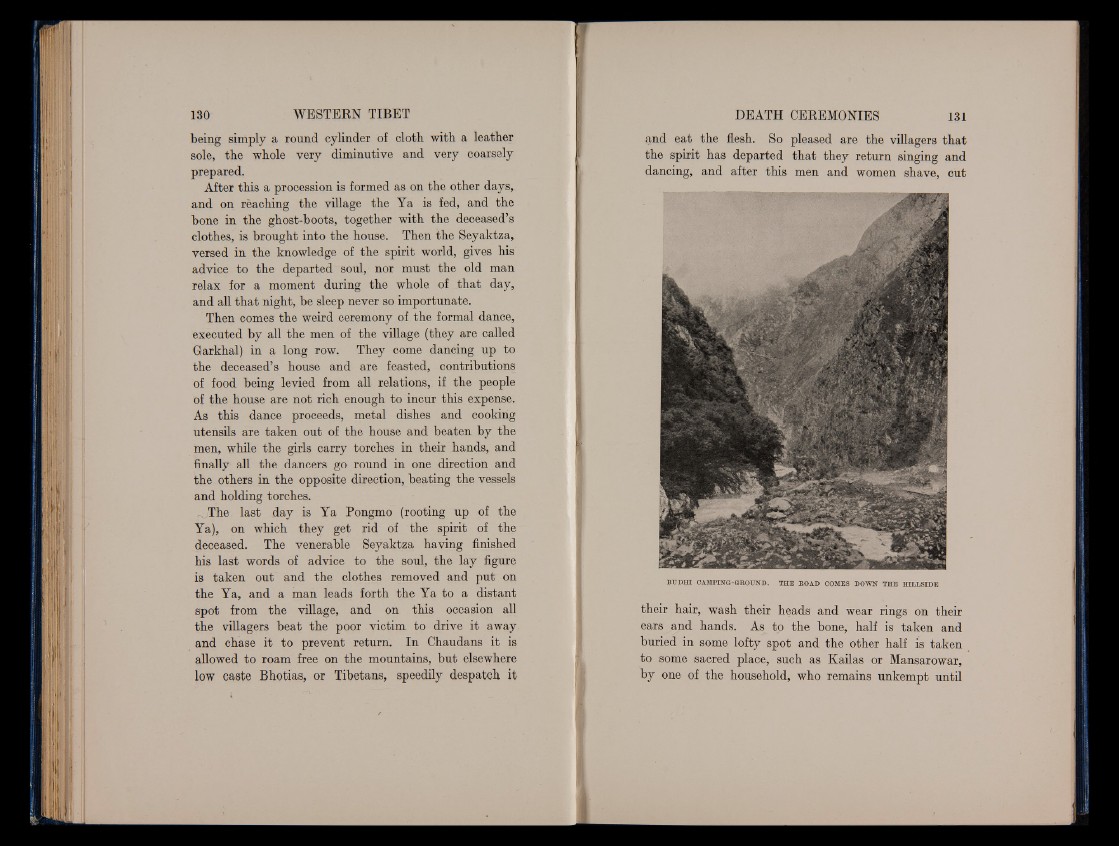
being simply a round cylinder of cloth with a leather
sole, the whole very diminutive and very coarsely
prepared.
After this a procession is formed as on the other days,
and on reaching the village the Ya is fed, and the
bone in the ghost-boots, together with the deceased’s
clothes, is brought into the house. Then the Seyaktza,
versed in the knowledge of the spirit world, gives his
advice to the departed soul, nor must the old man
relax for a moment during the whole of that day,
and all that night, be sleep never so importunate.
Then comes the weird ceremony of the formal dance,
executed by all the men of the village (they are called
Garkhal) in a long row. They come dancing up to
the deceased’s house and are feasted, contributions
of food being levied from all relations, if the people
of the house are not rich enough to incur this expense.
As this dance proceeds, metal dishes and cooking
utensils are taken out of the house and beaten by the
men, while the girls carry torches in their hands, and
finally all the dancers go round in one direction and
the others in the opposite direction, beating the vessels
and holding torches.
. The last day is Ya Pongmo (rooting up of the
Ya), on which they get rid of the spirit of the
deceased. The venerable Seyaktza having finished
his last words of advice to the soul, the lay figure
is taken out and the clothes removed and put on
the Ya, and a man leads forth the Ya to a distant
spot from the village, and on this occasion all
the villagers beat the poor victim to drive it away
and chase it to prevent return. In Chaudans it is
allowed to roam free on the mountains, but elsewhere
low caste Bhotias, or Tibetans, speedily despatch it
and eat the flesh. So pleased are the villagers that
the spirit has departed that they return singing and
dancing, and after this men and women shave, cut
BUDHI CAMPING-GROUND. THE BOAD COMES DOWN THE HILLSIDE
their hair, wash their heads and wear rings on their
ears and hands. As to the bone, half is taken and
buried in some lofty spot and the other half is taken
to some sacred place, such as Kailas or Mansarowar,
by one of the household, who remains unkempt until